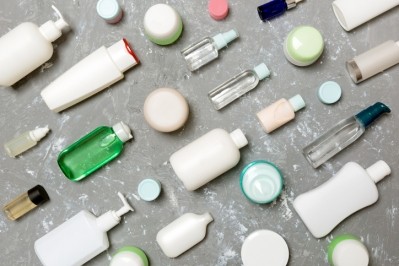EC adopts Chemicals Strategy for Sustainability – ‘most harmful’ substances to be phased out

The strategy, adopted yesterday by the EC, formed part of its wider European Green Deal announced in December, last year.
‘Urgent need’ to address health and environmental challenges
The Commission said the overarching goal of the new Chemicals Strategy was to boost innovation for “safe and sustainable chemicals” and increase protection of human health and the environment against hazardous chemicals.
“Chemicals Strategy fully recognises the fundamental role of chemicals for human wellbeing and for the green and digital transition of European economy and society. At the same time, it acknowledges the urgent need to address the health and environmental challenges caused by the most harmful chemicals. In this spirit, the Strategy sets out concrete actions to make chemicals safe and sustainable by design and to ensure that chemicals can deliver all their benefits without harming the planet and current and future generations,” the EC said.
As part of a series of initiatives under the Chemicals Strategy for Sustainability, the Commission said it would also initiate a phase-out of the “most harmful chemicals” from consumer products, including toys, childcare articles, cosmetics, detergents, food contact materials and textiles, unless proven essential for society; ensure minimal use of substances of concern; and address concerns related to cocktail effects of chemicals used in combination.
‘Instead of reacting, we want to prevent’
The EU has long regulated use of chemicals across all consumer product industries in what the EC said was recognised as a “sophisticated chemicals legislation” that had generated “the most advanced knowledge base on chemicals in the world”.
Under EU law, scientific bodies carried out risk and hazard assessments of chemicals. For the cosmetics and personal care category, use of chemicals was governed by the European Chemicals Agency (ECHA) and its REACH (Registration, Evaluation, Authorisation and Restriction of Chemicals) legislation. Overall product safety was governed by the European Cosmetics Regulation (EC 1223/2009).
But with global chemicals production expected to double by 2030, and Europe being the second biggest producer of chemicals in the world as of 2018, the Commission said policies needed to be “further strengthened”.
Frans Timmermans, executive vice president for the European Green Deal, said the first action would be a phase-out of the most harmful chemicals in consumer goods.
Addressing members of the press in a conference, Timmermans said: “In most cases, we now assess these chemicals one by one – and remove them when we find out they are unsafe. We will just flip this logic on its head. Instead of reacting, we want to prevent. As a rule, the use of the most harmful substances will be prohibited in consumer products.”
He said this applied to chemicals that could cause cancers or gene mutations; chemicals that affected the reproductive or hormonal system; and chemicals that slowly built up in the body.
“Chemicals are part and parcel of our daily life, and they play a crucial role in many of the innovations that help green our economy. But chemicals should also not hurt our health or the environment. Today, sadly too many chemicals still do,” he said.
EC to provide business support in green transition
Timmermans said the strategy also aimed to better protect the EU’s natural environment and so “as a priority”, persistent substances per- and polyfluoroalkyl substances (PFAS) would be banned.
“This is a so-called forever chemical: highly persistent, causing enormous health and environmental damage. We will only allow it where it is absolutely essential for society,” he said.
The EC noted that several innovation and investment actions would be foreseen to “accompany the chemicals industry” through the Chemicals Strategy for Sustainability transition.
Safe-and-sustainable-by-design criteria would be developed; EU funding and public-private partnerships created for commercialisation and uptake of these chemicals; and an EU research and innovation agenda launched to plug knowledge gaps. Enforcement of EU rules within the single market and at borders would also be increased and the EU legal framework simplified, notably by introducing a ‘one substance once assessment’ process.
ECHA said it was ready to support the implementation of the Chemicals Strategy, particularly in collecting, publishing and evaluating data on chemicals to stimulate innovation towards safety alternatives; ensuring that laws are implemented more efficiently and consistently; and speeding up chemicals risk management in the EU.
The EC said: “The Strategy envisages the EU industry as a globally competitive player in the production and use of safe and sustainable chemicals. The actions announced in the Strategy will support industrial innovation so that such chemicals become the norm on the EU market and a benchmark worldwide.”
Timmermans said business support was “of vital importance” within the Strategy.
“We want European industry to lead in producing and using chemicals that are safe and sustainable by design. This is really the essence of the Green Deal: we protect the planet and deliver a new model for sustainable economic growth; also in the chemicals sector.”
Cosmetics Europe supports ‘overarching goal’ of Chemicals Strategy
EU trade association Cosmetics Europe issued a statement in support of the “overarching goal” for a robust chemicals policy framework, noting that safety was the cosmetic and personal care industry’s “number one concern”.
However, the association said this was already well-managed under the EU Cosmetics Regulation – “one of the most stringent and respected regulations” in the world. Any future policy decisions, therefore, should be made based on evidence and science assessing the impact for consumers, the environment, industry and its competitiveness in a proportionate manner, it said.
“As a constructive stakeholder, Cosmetics Europe will engage in the future debates on the specific initiatives presented in the Chemicals Strategy for Sustainability of relevance for the cosmetics and personal care industry.”
![The provisional agreement of the European Climate Law Regulation will be adopted by the European Parliament in June and by the Council of the European Union in July [Getty Images]](https://www.cosmeticsdesign-europe.com/var/wrbm_gb_food_pharma/storage/images/_aliases/wrbm_medium/publications/cosmetics/cosmeticsdesign-europe.com/article/2021/06/11/european-climate-law-to-be-adopted-by-parliament-and-council-of-the-european-union-in-next-two-months/12558471-1-eng-GB/European-Climate-Law-to-be-adopted-by-Parliament-and-Council-of-the-European-Union-in-next-two-months.jpg)









![Chinese study highlights mental health challenges in atopic dermatitis, emphasising holistic patient care. [Getty Images]](https://www.cosmeticsdesign-europe.com/var/wrbm_gb_food_pharma/storage/images/_aliases/wrbm_tiny/publications/cosmetics/cosmeticsdesign-asia.com/headlines/formulation-science/chinese-research-linking-atopic-dermatitis-to-mental-health-underscores-need-for-holistic-care/17040623-1-eng-GB/Chinese-research-linking-atopic-dermatitis-to-mental-health-underscores-need-for-holistic-care.jpg)








